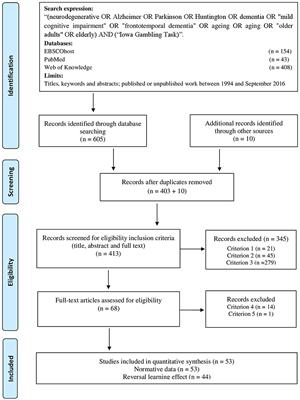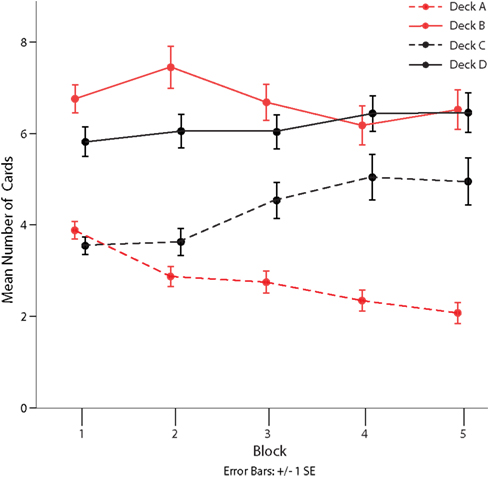Iowa Gambling Task Bechara 1994
Posted By admin On 01/08/22
Iowa Gambling Task Demo


Iowa Gambling Task Software

THE IOWA GAMBLING TASK. The IGT (Bechara et al., 1994) has become the key experimental paradigm in evaluation of emotion-based decision-making, especially when humans are faced with emotion-mediated information, ambiguous contingencies, and uncertain consequences (e.g., Rogers et al., 1999; Manes et al., 2002; Bowman and Turnbull, 2004; Happaney et al., 2004). Designed in 1994, the Iowa gambling task (IGT) has become one of the most complicated tasks used to study executive functions and emotionally driven decision making under uncertainty (Bechara et al., 1994, 1997, 1998, 1999, 2000). One of the hallmarks (maybe the hallmark) of an unhealthy gambling approach is the failure to objectively evaluate the odds they are faced with. And one of the ways this can be tested is with the Iowa Gambling Task. First designed by Antoine Bechara and others in 1994, the test was originally used to measure decision-making abilities. This decision-making required that the participants simply select a card from one of four decks – hardly a tricky bet. Development of affective decision-making was studied in 48 children at two ages (3 and 4 years) using a simplified version of the Iowa Gambling Task (Bechara, Damasio, Damasio, & Anderson, 1994).
A decision task designed to simulate real-life decision-making. On each trial the decision maker chooses a card from one of four decks, each choice resulting in a fixed gain of $100 for any card from two of the decks or $50 for any card from the other two, although the decision maker is not told this. For some cards, the decision maker also suffers a loss. Losses total $1,250 for every ten cards in two of the decks and $250 for every ten cards in the other two. These gains and losses are arranged so that two of the decks yield substantial expected losses and the other two substantial expected gains over every run of 10 cards, but there are sharp differences between short-term and long-term payoffs, small losses occurring relatively frequently in some decks and larger but less frequent losses occurring in others. The task was introduced by the Canadian neuroscientist Antoine Bechara (born 1961) and published with three colleagues in the journal Cognition in 1994, where it was shown that people with damage to the prefrontal cortex, in contrast to neurologically undamaged participants in their control group, performed badly, failing to consider the future consequences of their actions and being guided only by immediate prospects. See also somatic marker hypothesis. IGT abbrev. [So-called because the researchers who developed it were at the University of Iowa at the time]